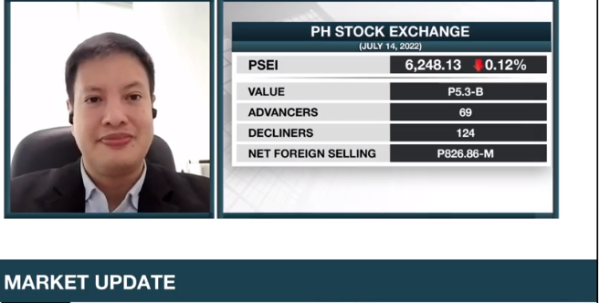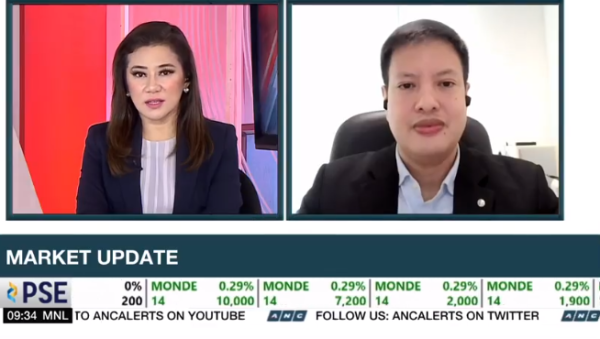[8.15] '벽돌과 모르타르'에서 '클릭과 모르타르'를 사용해 보세요. 상점들은 디지털 트렌드에 적응할 것을 촉구합니다.
컨텐츠 정보
- 16,567 조회
본문
마닐라 - 온라인 상점의 증가에도 불구하고 물리적 상점들은 필리핀 경제에 필수적인 요소이지만 디지털 경제에 적응하는 법을 배워야 한다고 글로벌 소매 전문가 "톰 올리버"가 말했습니다.
"올리버"는 시티 파사이에서 열린 전국 소매 회의 및 상점 아시아 엑스포 2022에서 "대유행"이 디지털 기술의 채택을 가속화시켰을 수도 있지만 "벽돌과 박격포" 상점들이 뒷걸음질 치는 것을 의미하지는 않는다고 말했습니다.
많은 소매업자들은 유형적이거나 물리적인 물건을 사용하는 쇼핑보다 더 좋은 것은 없다고 주장해 왔습니다.
"특히 필리핀에서는, 사람들이 쇼핑 경험을 좋아합니다. 네, 그들은 여전히 팬데믹 전보다 집에 더 많이 머무르고 있습니다. 하지만 그들은 사랑하고, 쇼핑 문화를 가지고 있고, 여기에 쇼핑몰 문화를 가지고 있습니다."라고 "올리버"가 말했습니다.
그러나 그는 "벽돌과 모르타르"를 "클릭과 모르타르" 모델로 업데이트함으로써 기업들이 소비자 동향에 따라 진화해야 한다고 강조했습니다. 이 모델에서는 온라인 측면이 쇼핑 경험에 추가되어 있습니다.
필리핀에서는 SM몰, 퓨어골드 등 실물 유통업체들이 온라인이나 앱을 통해 소비자가 주문하고 원하는 장소에서 물건을 찾을 수 있는 모바일 앱과 온라인 쇼핑 옵션을 오프라인 쇼핑에 도입했습니다.
그는 "소매업체들은 디지털을 진정으로 마스터하고 있으며, 어떻게 하면 "클릭 앤 모르타르"가 아닌 "클릭 앤 모르타르"가 될 전체적인 통일된 라이프스타일 경험을 만들 수 있는지 이해해야 합니다."라고 덧붙였습니다.
그는 모든 소매업자들에게 변화를 두려워하지 말고 소비자 행동의 패턴을 파악하여 그들의 산업에서 번창할 수 있도록 하라고 촉구했습니다.
한편, 필리핀 소매업 협회는 소매업계가 올해 회복될 것으로 낙관하고 있습니다. "로즈마리 옹" 사장은 올 상반기에 더 많은 사람들이 물건과 서비스를 구매하는 것을 보았다고 말했습니다.
금융 기관들은 또한 신용카드 사용과 소비자 지출이 살아나기 시작했다고 확인했는데, 지출은 필수적인 수준을 넘어섰고 여유가 있는 일부 사람들에게는 명품을 서서히 포함시키고 있습니다.
"우리는 그들이 말하는 대로 복수를 쇼핑하는 것을 보았습니다. 우리는 많은 사람들이 과거로 돌아가는 것을 보았습니다. 그들은 전염병 이전의 활동들로 돌아가고 있습니다. 그들 중 많은 사람들은 이미 여행을 하고 있고 심지어 쇼핑도 하고 있습니다."옹"이 말했습니다.
소매 지출은 신중하지만 계속됩니다.
하지만 "옹"은 6.4%에 달했던 인플레이션이 여전히 일부 부문과 필수품 할당을 포함한 많은 가난한 필리핀인들의 소비 능력에 영향을 미치고 있다는 것을 인식했습니다.
"음식에 대해 말할 때, 물론 사람들은 계속 먹습니다. 당신은 단지 당신이 무엇을 살 때 까다롭기만 하면 됩니다. 여러분이 옷에 대해 말할 때, 아마도 여러분은 더 실용적이고, 더 신중해질 것입니다," 라고 그녀가 말했습니다.
"많은 사람들이 구매할 때 [구매]를 정말 낮게 평가합니다. 지갑 크기가 줄었다는 것은 우리 모두 알고 있습니다. 그것은 도전이었습니다," 라고 그녀가 덧붙였습니다.
그러나 "옹"은 올 8월에 대면 수업의 복귀가 소매 부문에도 혜택을 줄 수 있는 경제 성장을 촉진할 수 있다는 희망을 가지고 있습니다.
This is the Original Article from ABS-CBN NEWS
MANILA - Physical stores will remain essential to the Philippine economy despite the rise of online shops but must learn to adjust to the digital economy, global retail expert "Tom Oliver" said.
The pandemic may have accelerated the adoption of digital technologies but that does not mean that "brick and mortar" stores would take a back seat, "Oliver" said during the National Retail Conference and Stores Asia Expo 2022 in Pasay, City.
Many retailers have argued that nothing beats shopping using tangible or physical items.
"Especially in the Philippines, people love the shopping experience. Yes they still stay home more than they did before the pandemic, but they love, you have the shopping culture, you have the mall culture here," said "Oliver".
But he stressed firms must evolve along with consumer trends by updating the "brick and mortar" to "click and mortar" model where an online aspect is added to the shopping experience.
In the Philippines, physical retailers such as SM Malls and Puregold, have introduced mobile apps and online to offline shopping options where consumers can order online or via the app and pick up the goods in their preferred locations.
"Retailers really master digital and have to understand how do we create a holistic, unified lifestyle experience that's gonna be "click and mortar", not brick and mortar," he added.
He urged all retailers to not be afraid of changes and see the patterns of consumer behavior to be able to thrive in their industry.
The Philippine Retailers Association, meanwhile, is optimistic the retail sector will recover this year. Its President "Rosemarie Ong" said the first half of the year has seen more people buying things and services.
Financial institutions have also confirmed that credit card use and consumer spending have started to pick up, with spending going beyond essentials and slowly including luxury goods for some who have money to spare.
"We've seen the revenge shopping as they say. We've seen people going back, many of our people they're going back to pre-pandemic activities. Many of them are travelling already and even shopping," said "Ong".
RETAIL SPENDING CONTINUES ALBEIT PRUDENT
But "Ong" recognized that inflation that reached 6.4 percent is still affecting some sectors and many poor Filipinos' ability to spend, including allotments for essentials.
"When you talk about food, Of course people continue to eat. You just have to be choosy in what you buy. When you talk about clothes, probably you'll be more practical, more prudent," she said.
"Many really downgrade their [purchase] when they buy. We all know the wallet sizes diminished. It has been a challenge," she added.
But "Ong" is hopeful that the return of face-to-face classes this August could spur economic growth that would also benefit the retail sector.
관련자료
-
이전
-
다음



